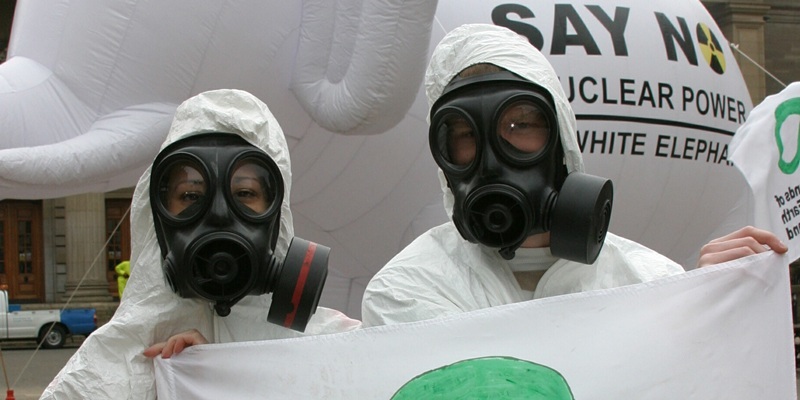The battle to prevent a meltdown at a Japanese nuclear power station after last week’s devastating earthquake has raised more concerns about the safety of nuclear power.
Advocates of nuclear energy maintain it is not only safe, but also a vital part in meeting the UK’s future energy needs. Opponents, such as the Scottish Government, believe renewable sources will be able to provide enough electricity with none of the risk of nuclear energy.
Events in Japan have ensured nuclear energy will now be a key topic in the Scottish Parliament elections, particularly as the 25th anniversary of the Chernobyl disaster will occur shortly before Scotland goes to the polls.
On April 26, 1986, a series of explosions rocked the Chernobyl nuclear power plant in Ukraine, sending up a radioactive plume that fell on most of Europe.
Fifty-seven people died in the immediate aftermath but thousands more suffered from illnesses caused by fallout.
Thousands more are thought to have developed cancer as a result while a sharp rise in the number of children born with birth defects in 1987 was blamed on the disaster.
Restrictions are still in place for the transport and consumption of food that may have been contaminated.
It remains the worst nuclear power plant accident in history and casts a long shadow over the nuclear energy industry.
Fortunately, experts believe a disaster on a similar scale will not result from explosions at the 41-year-old Fukushima Dai-ichi plant, even though it could be months before it is under control.
The power station was damaged by the earthquake and subsequent tsunami that hit Japan last week.
Professor Mike Fitzpatrick from the Open University said automatic precautions had shut the reactors down quickly after the earthquake.
“At Chernobyl there was an enormous explosion,” he said.
“It’s hard to see a chain of events that would distribute radioactive material (in Japan) to such an extent.
“It’s not like a nuclear bomb.”
As engineers continue their battle to prevent a meltdown in Japan, environmental groups have said events in Japan show the need to develop safer sources of energy.
Juliet Swann, head of projects and campaigns at Friends of the Earth Scotland, said, “The intensity of the earthquake and tsunami that hit Japan were catastrophic enough.
“That an ageing nuclear plant, due to be permanently retired at the end of the month, could cause additional tragedy just serves to demonstrate the threat of relying on nuclear power in unstable times.
“The only safe and secure form of energy in the world we live in now is that which harnesses our clean resources.”
John Ainslie, from the Scottish Campaign for Nuclear Disarmament (CND), added, “The explosion at the Fukushima reactor is a sobering reminder of the risks that we face in Scotland from nuclear power and Trident submarines.
“This accident comes only days after the Navy admitted that the reactors on British submarines are ‘significantly below benchmarked good practice,’ and weeks before the 25th anniversary of the Chernobyl disaster.”
Political opinion is divided.
The coalition government at Westminster believes a mix of energy sources, including nuclear, will be needed to power the UK in the future, while the Scottish Government is adamant there is no need for new nuclear reactors on Scottish soil.
A spokesman for the Scottish Government said, “Scotland’s energy advantage lies in our vast renewables and clean fossil fuels potential, many times our own energy needs.
“In fact, just yesterday a new report showed 13,000 new jobs could be created in the carbon capture and storage industry, highlighting the vast potential for green jobs that will cut emissions and create long-term sustainable growth.”
Conversely, Scottish Labour believe there is a need for new nuclear power stations in Scotland and a spokesman for the party said its position has not changed because of the ongoing crisis in Japan.
